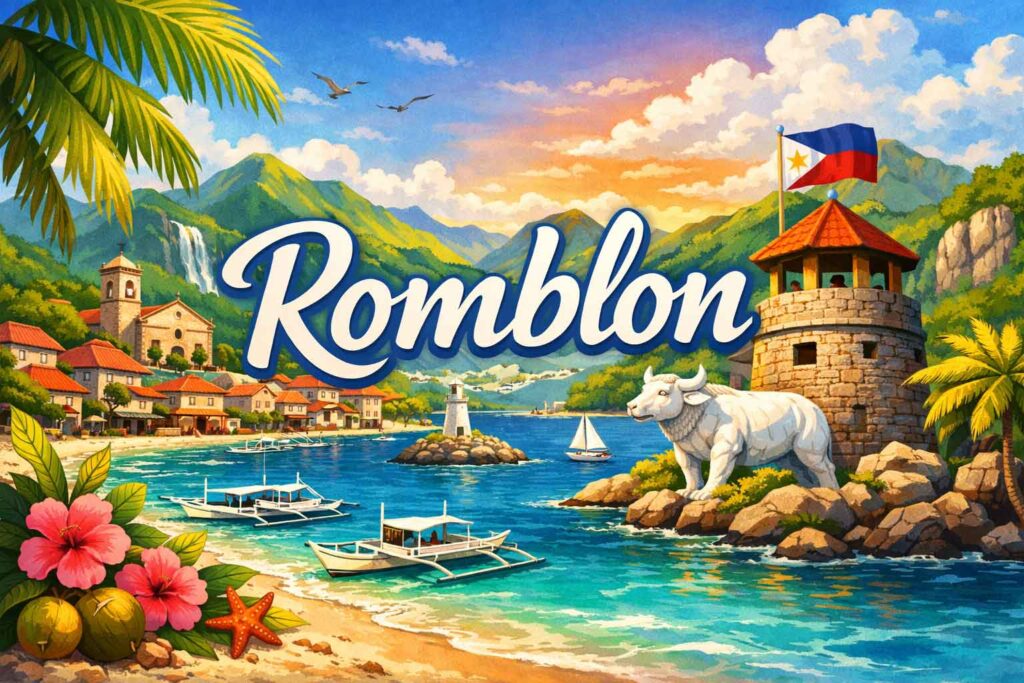Romblon’s sustainable and moral pearl farming initiatives
Welcome to Romblon, a hidden gem within the Philippines famend for its pristine seashores and breathtaking landscapes. However there’s extra to this enchanting province than meets the attention. Nestled beneath its azure waters lies a thriving business that’s each sustainable and moral – pearl farming. On this weblog put up, we are going to dive deep into Romblon’s wealthy historical past with pearl farming, discover the present state of the business, and uncover how these initiatives are making waves in defending our surroundings and uplifting native communities. So seize your snorkel masks and be part of us on an underwater journey like no different!
What’s pearl farming?
Pearl farming is an historical follow that includes cultivating pearls in oysters. It is a delicate course of that requires cautious nurturing and persistence. The journey begins with choosing the proper oyster, normally of the Pinctada maxima species, recognized for producing high-quality pearls.
As soon as chosen, these oysters are rigorously positioned in underwater farms the place they will thrive of their pure habitat. Right here, they’re shielded from predators and supplied with optimum situations for development. Over time, the oysters kind layers of nacre round an irritant or nucleus launched by pearl farmers.
This pure protection mechanism creates a lustrous pearl throughout the shell. It takes years for these beautiful gems to develop absolutely, making every one distinctive and valuable.
Pearl farmers frequently monitor water high quality and guarantee sustainable practices to keep up a wholesome ecosystem. In addition they meticulously clear and look after the oysters to reduce any potential hurt.
The harvested pearls are then rigorously extracted with out harming the oyster or its future productiveness. These shimmering beauties are available numerous shapes, sizes, and colours – from traditional white to uncommon shades like black or pink.
Romblon has embraced this age-old custom of pearl farming as a part of its heritage whereas evolving it into sustainable practices that profit each nature and native communities. Let’s take a more in-depth have a look at Romblon’s fascinating journey with pearl farming!
Romblon’s historical past with pearl farming
Romblon, a province within the Philippines, has a wealthy historical past in terms of pearl farming. Relationship again centuries, Romblon has been often known as the “Pearl Capital of the Philippines” because of its considerable marine assets and ideal situations for cultivating pearls.
The custom of pearl farming in Romblon will be traced again to the indigenous Mangyan tribes who have been expert divers and gatherers of pure pearls. They might enterprise into the clear waters surrounding Romblon Island, skillfully diving down to gather oysters from which they may extract valuable pearls.
As time went on, pearl farming strategies advanced and modernized in Romblon. The introduction of Japanese cultured pearls within the 1900s spurred much more curiosity and development on this business. Native farmers started experimenting with grafting strategies to provide their very own cultured pearls, resulting in elevated manufacturing and financial prosperity for the area.
Right now, Romblon continues to be famend for its high-quality pearls which are wanted each regionally and internationally. The province continues to embrace sustainable practices by selling accountable harvesting strategies that prioritize conservation efforts whereas making certain a gradual provide of high quality pearls.
With an emphasis on moral practices, Romblon’s pearl farms adhere to strict tips concerning water high quality administration and ecological preservation. These initiatives not solely shield delicate marine ecosystems but in addition contribute positively in direction of sustaining biodiversity within the space.
Furthermore, these sustainable pearl farming initiatives have had vital socio-economic advantages for native communities. Pearl farms present employment alternatives for residents who work as divers or farm employees, boosting earnings ranges and bettering their way of life. Moreover, tourism associated to pearl farming has flourished over time with guests desirous to witness firsthand how these lustrous gems are cultivated sustainably.
In conclusion (don’t use this phrase), Romblon’s deep-rooted historical past with pearl farming has paved the way in which for sustainable and moral initiatives that proceed as we speak. By prioritizing environmental conservation and adhering strictly to accountable practices, Romblon’s pearl farms not solely produce beautiful pearls but in addition contribute
The present state of pearl farming in Romblon
The present state of pearl farming in Romblon is flourishing, because of the concerted efforts of native communities and organizations. With its pristine waters and splendid situations for oyster cultivation, Romblon has grow to be a hub for sustainable and moral pearl manufacturing.
Lately, there was a resurgence of curiosity in pearl farming as shoppers more and more prioritize sustainability and moral sourcing. This development has led to elevated funding within the business, leading to improved infrastructure, know-how, and information sharing amongst farmers.
Romblon’s pearl farms are actually using modern strategies similar to selective breeding to provide high-quality pearls that meet worldwide requirements. Farmers rigorously nurture their oysters from spat to maturity, making certain optimum development and well being. These practices not solely improve the standard of the pearls but in addition contribute to the general well-being of the marine ecosystem.
Moreover, there’s a rising recognition inside Romblon’s pearl farming neighborhood in regards to the significance of environmental conservation. Many farms have carried out eco-friendly practices like utilizing biodegradable supplies for cultivating oysters or adopting natural fertilizers to reduce hurt to surrounding waters.
The native authorities has additionally performed an important position by supporting initiatives that promote accountable aquaculture practices. They supply coaching applications on sustainable farming strategies whereas imposing laws towards dangerous practices that would degrade water high quality or harm ecosystems.
With its dedication to sustainability and ethics, Romblon’s pearling business is poised for continued development whereas safeguarding each nature and livelihoods. The longer term appears promising as extra shoppers embrace these acutely aware selections in terms of buying beautiful pearls from this lovely area.
Romblon’s sustainable and moral pearl farming initiatives
Romblon, an idyllic province within the Philippines, has lengthy been recognized for its beautiful seashores and crystal-clear waters. However do you know that additionally it is house to a thriving sustainable and moral pearl farming business?
Pearl farming includes cultivating oysters in rigorously managed environments to provide high-quality pearls. Romblon has a wealthy historical past with pearl farming courting again a number of many years. The locals have honed their expertise over generations, making them specialists on this delicate craft.
Right now, Romblon’s pearl farmers proceed their legacy whereas embracing sustainable practices. They prioritize the well-being of the setting through the use of accountable harvesting strategies that reduce harm to marine ecosystems. This consists of cautious monitoring of water high quality and making certain correct waste administration.
Nevertheless it would not cease there – Romblon’s moral method extends past environmental sustainability. The native pearl farms additionally prioritize truthful therapy and welfare of their employees. By offering truthful wages, secure working situations, and alternatives for talent growth, they create a optimistic affect on the neighborhood.
These sustainable and moral initiatives should not solely helpful for the setting but in addition for the native economic system. Pearl farming supplies employment alternatives for a lot of residents who would possibly in any other case wrestle to seek out work in rural areas like Romblon.
Furthermore, these initiatives promote tourism as guests are drawn to expertise firsthand how pearls are responsibly cultivated whereas supporting native companies instantly concerned on this commerce.
In conclusion , Romblon’s dedication to sustainable and moral pearl farming units an instance for different areas world wide. By balancing financial development with environmental conservation and socially accountable practices, they show that progress will be achieved with out compromising our planet or folks’s well-being!
How these initiatives are serving to the setting and the native economic system
Romblon’s sustainable and moral pearl farming initiatives not solely profit the native economic system but in addition have a optimistic affect on the setting. By embracing eco-friendly practices, these initiatives are serving to to protect and shield the fragile marine ecosystem during which pearls thrive.
One of many key methods during which these initiatives are benefiting the setting is thru accountable sourcing. Romblon pearl farmers prioritize sustainably harvesting oysters, making certain that they don’t deplete pure populations or disrupt the ecological stability of their habitat. This method helps to keep up biodiversity and stop overfishing, which might have far-reaching penalties for marine ecosystems.
Moreover, pearl farmers in Romblon make use of environmentally pleasant strategies throughout cultivation and harvesting processes. They use natural strategies to keep up water high quality, reduce air pollution, and scale back waste manufacturing. These measures assist to safeguard each marine life and surrounding coastal areas from dangerous pollution that would in any other case trigger vital harm.
Moreover, these moral farming practices contribute on to preserving coral reefs – one other very important a part of Romblon’s marine ecosystem. Pearl farms typically act as synthetic reef constructions the place corals can connect themselves and develop, offering a habitat for numerous species whereas selling coral regrowth in areas affected by human exercise or pure disturbances.
The financial advantages of those sustainable initiatives lengthen past simply earnings era for native communities. By sustaining a wholesome marine setting, Romblon’s pearl farming business attracts vacationers concerned about eco-tourism experiences centered round accountable journey selections. This boosts tourism income whereas elevating consciousness about environmental conservation amongst guests who come into contact with these ethically sourced pearls.
In conclusion (not concluding), it’s evident that Romblon’s sustainable and moral pearl farming initiatives provide quite a few benefits for each the setting and the native economic system. From defending fragile ecosystems to attracting conscientious vacationers looking for genuine experiences, this method showcases how accountable enterprise practices can create long-term advantages for everybody concerned
Conclusion
Conclusion
Romblon’s sustainable and moral pearl farming initiatives haven’t solely revitalized the once-thriving business but in addition introduced optimistic adjustments to each the setting and the native economic system. Via accountable practices similar to utilizing non-toxic supplies, implementing correct waste administration techniques, and supporting native communities, Romblon has grow to be a shining instance of how pearl farming will be completed in an eco-friendly and socially accountable method.
By prioritizing sustainability, Romblon ensures that its pristine marine ecosystems are protected for future generations. Using non-toxic supplies reduces air pollution ranges within the water, making a more healthy habitat for marine life. Moreover, correct waste administration techniques stop dangerous substances from coming into the encircling waters, preserving their delicate stability.
These initiatives have additionally had a major affect on the native economic system. By offering employment alternatives to residents who beforehand relied on conventional fishing strategies or agricultural work, pearl farming has helped alleviate poverty within the area. Furthermore, by means of community-based tasks and partnerships with artisanal jewellery makers, Romblon’s pearls have gained recognition globally for his or her top quality and moral origins.
With ongoing efforts to advertise sustainable practices throughout the pearl farming business, Romblon continues to be on the forefront of environmental stewardship and social duty. As extra shoppers grow to be acutely aware about the place their merchandise come from and the way they’re produced, selecting pearls from Romblon helps not solely beautiful jewellery but in addition a greater world.
So subsequent time you admire these lustrous pearls adorning your neck or wrist, do not forget that behind every beautiful piece lies a narrative of sustainability and ethics crafted in concord with nature by passionate people in Romblon – really making it one in all nature’s hidden gems!


